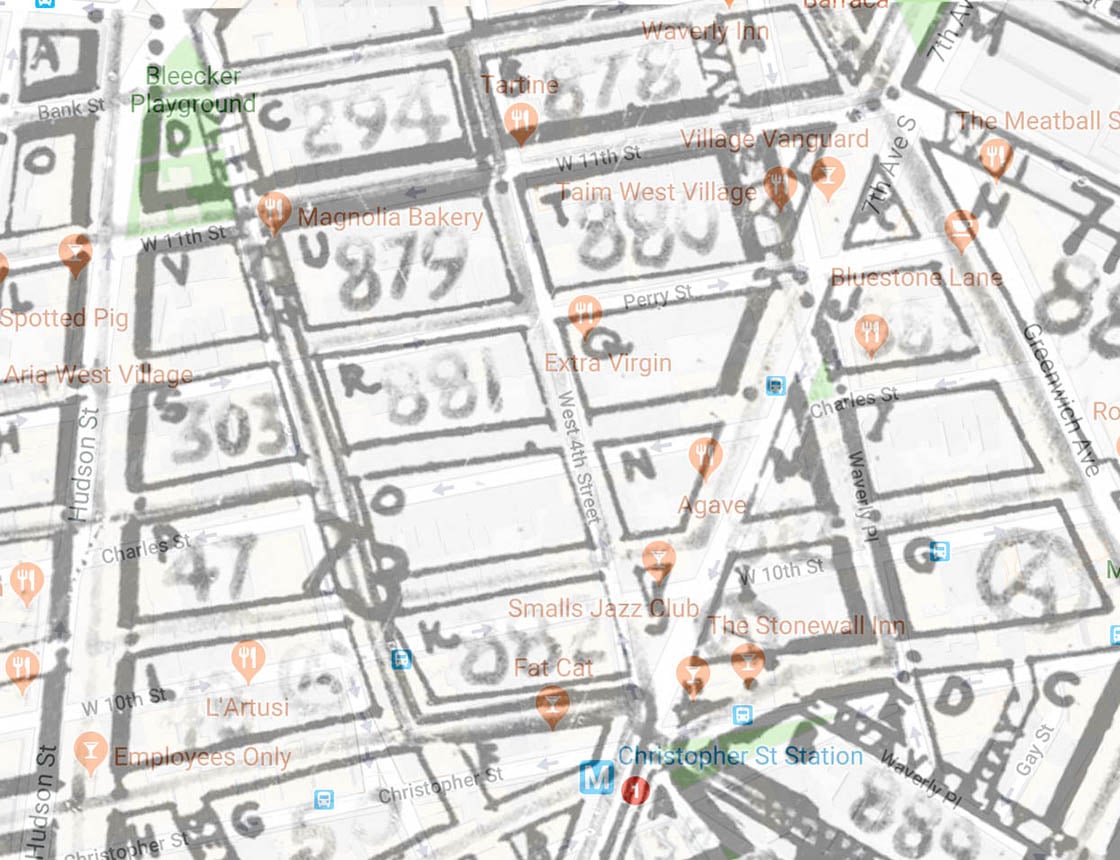Partners in prewar Greenwich Village

My friend, the historian Dan Bouk, has a fascinating find in the 1940 U.S. census. Over 200,000 people are listed as “partners” on census accountings of households, despite the fact that the census instructions make no particular allowance for “partners” as a category.
What’s more, partners show up disproportionately in neighborhoods where we know gay people settled: Greenwich Village, parts of the Upper East Side, and so forth.
All we can say for sure about Brand and Grant—and the other 11 partnerships that Davis recorded—is that they shared a sink. It seems likely that at least some of these households did live together as lesbian or gay couples. But it could also be that we find so many partnerships in this gay neighborhood, because the presence of queer folk indicated or amplified social and cultural spaces in which people could live openly in odd (that is, unusual), but non-sexual arrangements. The census didn’t ask about sexual identity or sexual behavior, and so we cannot know from the census alone.
As for those other partnerships, five partners were women living with another woman, the pairs always within a few years in age. They included a pair of doctors, two travel agents (who may have been business partners, if nothing else), an editor and a secretary, and a secretary and a stenographer who both worked for the YMCA(!). Two of the partners were male-male, including a police detective who lived with a patrolman.
As Bouk writes of his own (romantic) partner, “I thought we were being very modern, that this was a new sort of relationship.” But partners seem to have been around and declared for a very long time.





Stay Connected